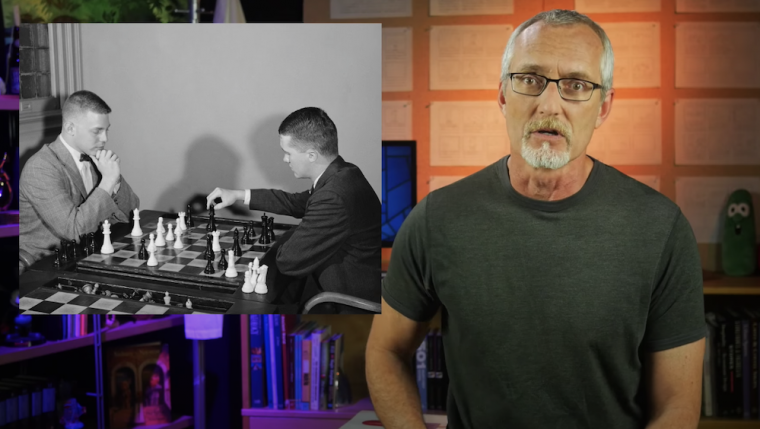VeggieTales creator condemns racial inequality in America in viral video

The creator of VeggieTales has gone viral after releasing a video in which he highlights the racial discrimination and social and economic disparity that continues to be experienced by black Americans 150 years after the end of slavery.
Phil Vischer, who voices Bob the Tomato in the popular Christian kids animation series, said it was important to understand why people were so angry about racial injustice.
In the video "Race in America", posted on YouTube, he said he didn't have all the answers but just wanted people to care.
"We need to talk about race. Why are people protesting; why are people angry?" he said.
"Slavery ended 150 years ago, the civil rights movement was 60 years ago, racial discrimination is illegal now. Heck, we even had a black president. So why are people still upset?"
In an attempt to answer these questions, he used the 15-minute video to highlight some key data on wealth distribution and typical household income.
"These are two households in America, one is black, the other is white. Today the average black household has 60% of the income of the average white household, but only one 10th of the household wealth," he explained, adding that this has a far wider social impact because of the way household wealth funds enterprise and education, and helps individual families weather financial storms.
He noted, however, that while some of the wealthiest Americans are black, the average wealth of black households is still far behind that of white households.
"What's amazing about this number is that there are lots of extremely wealthy African Americans: movie stars, pop stars, 75% of the NBA, 70% of the NFL, Oprah, Tyler Perry, Ben Carson, Morgan Freeman," he continued.
"And there are a lot of extremely poor white families - think of Appalachia and other parts of rural America.
"But even when we factor all that in, the average black household still has only one 10th the wealth of the average white household."
He argued that the disparity today is the direct result of decades of unjust laws and regulations, like segregation, as well as the militarization of the police and inequality in the prison system.
"[It] didn't happen by accident. It happened by policy," he said.
"We, the majority culture, told them [black people] where they could live and where they couldn't. Then we moved most of the jobs to the places we told them they couldn't live.
"When the predictable explosion of unemployment and poverty resulted in a predictable increase in drug use and crime. We criminalized the problem. We built $19 billion of new jails, and sold grenade launchers to the police."
He continued: "As a result, a white boy born in America today has a one in 23 chance of going to prison in his lifetime. For a black boy, it's one in four. And that is why people are angry.
"Many people care deeply about these issues, many have suggested solutions. Some of those have been tested with results ranging from moderate success to abject failure.
"I'm not here to tell you what the right solutions are, because I don't know. I'm just here to ask you to do one thing. It is the thing that begins every journey to a solution for every problem. What am I asking you to do? Care!"











